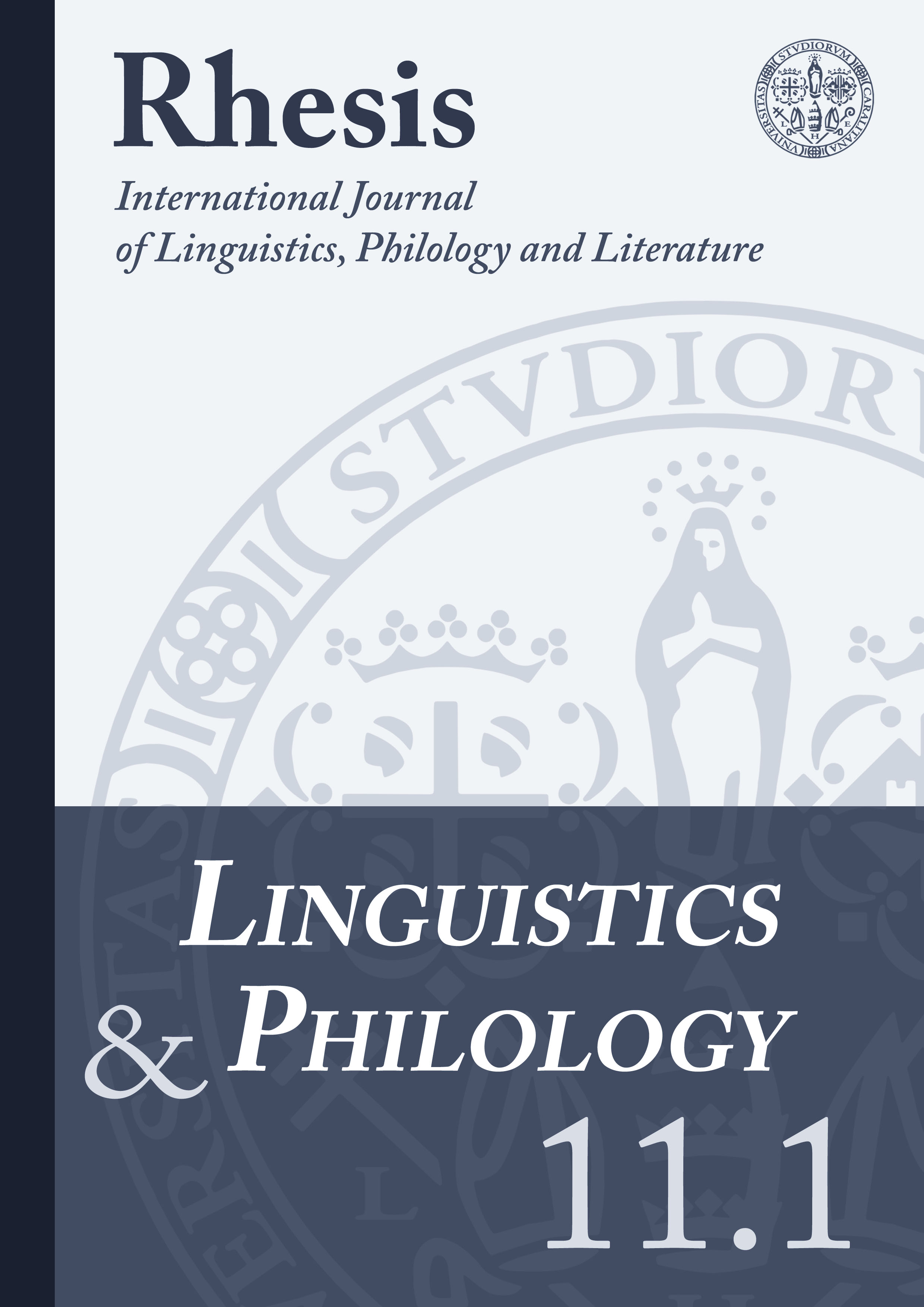‘Show, Don’t Tell’: How to Make Jurors Angry as a Young Athenian Prosecutor
Abstract
It is now well established that direct anger (ὀργή) appeals were a common feature of public prosecution speeches at classical Athens. However, there are a small number of speeches which depart from this norm and invite questions as to whether the evocation of dicastic anger was an essential goal or simply a popular strategic option. This paper explores the implications of the former possibility by focusing on one speech in particular, pseudo-Demosthenes’ Against Theocrines. It argues that the prosecutor’s youth is the primary reason behind his abandoning of anger appeals. He chooses, instead, to prioritise ensuring that his character conforms to the expectations of the jurors, including the avoidance of instruction as to what ought to make them angry. Though they are not told to be angry, the jurors are nevertheless shown what has made them angry in the past – the maltreatment of the young and vulnerable through the manipulation of public-serving citizens such as themselves – while the speaker’s presentation of himself as a victim of such treatment serves as the necessary provocation.
Downloads
References
Bers, Victor (2003), Demosthenes. Speeches 50-59, Austin, University of Texas Press.
Cairns, Douglas L. (1996), ‘Hybris, Dishonour and Thinking Big’, The Journal of Hellenic Studies 116, 1-32.
Cairns, Douglas L. (2015), ‘Revenge, Punishment, and Justice in Athenian Homicide Law’, The Journal of Value Inquiry 49, 645-665.
Christ, Matthew Robert (1998), The Litigious Athenian, London, John Hopkins University Press.
Dover, Kenneth James (1974), Greek Popular Morality in the Time of Plato and Aristotle, Oxford, Blackwell.
Fisher, Nick R. E. (1992), Hybris: A Study in the Values of Honour and Shame in Ancient Greece, Warminster, Aris & Phillips.
Hansen, Mogens Herman (1976), Apagoge, Endeixis and Ephegesis against Kakourgoi, Atimoi and Pheugontes: A Study in the Athenian Administration of Justice in the Fourth-century B.C., Odense, Odense University Press.
Hansen, Mogens Herman (1991), ‘Political Powers of the People’s Court in Fourth-century Athens’, Murray, Oswyn; Price, Simon (eds.), The Greek City from Homer to Alexander, Oxford, Clarendon Press, 215-243.
Hansen, Mogens Herman (2001) [1991], The Athenian Democracy in the Age of Demosthenes, Bristol, Bristol Classical Press.
Harris, Edward (2013), The Rule of Law in Action in Democratic Athens, Oxford, Oxford University Press.
Hunter, Virginia (1994), Policing Athens: Social Control in the Attic Lawsuits, 420-320 B.C., Princeton, Princeton University Press.
MacDowell, Douglas M. (2009), Demosthenes the Orator, Oxford, Oxford University Press.
Roisman, Joseph (2005), The Rhetoric of Manhood: Masculinity in the Attic orators, London, University of California Press.
Rubinstein, Lene (2004), ‘Stirring up Dikastic Anger’, in Cairns, Douglas L.; Knox, Ronald A. (eds.), Law, Rhetoric and Comedy in Classical Athens: Essays in honour of Douglas M. MacDowell, Swansea, Classical Press of Wales, 187-203.
Rubinstein, Lene (2013), ‘Evoking Anger through Pity: Portraits of the Vulnerable and Defenceless in Attic Oratory’, in Chaniotis, Angelos; Ducrey, Pierre (eds.), Unveiling Emotions II: Emotions in Greece and Rome: Texts, Images, Material Culture, Stuttgart, Franz Steiner Verlag, 136-165.
Rubinstein, Lene (2016), ‘Communal Revenge and Appeals to Dicastic Emotions’, in Tiersch, Claudia (Hrsg.), Die Athenische Demokratie im 4. Jahrhundert. Zwischen Modernisierung und Tradition, Stuttgart, Franz Steiner Verlag, 55-72.
Sanders, Ed (2012), ‘“He’s a Liar, a Bounder, and a Cad”: The Arousal of Hostile Emotions in Attic Forensic Oratory’, in Chaniotis, Angelos (ed.), Unveiling Emotions: Sources and Methods for the Study of Emotions in the Greek World, Stuttgart, Franz Steiner Verlag, 359-388.



